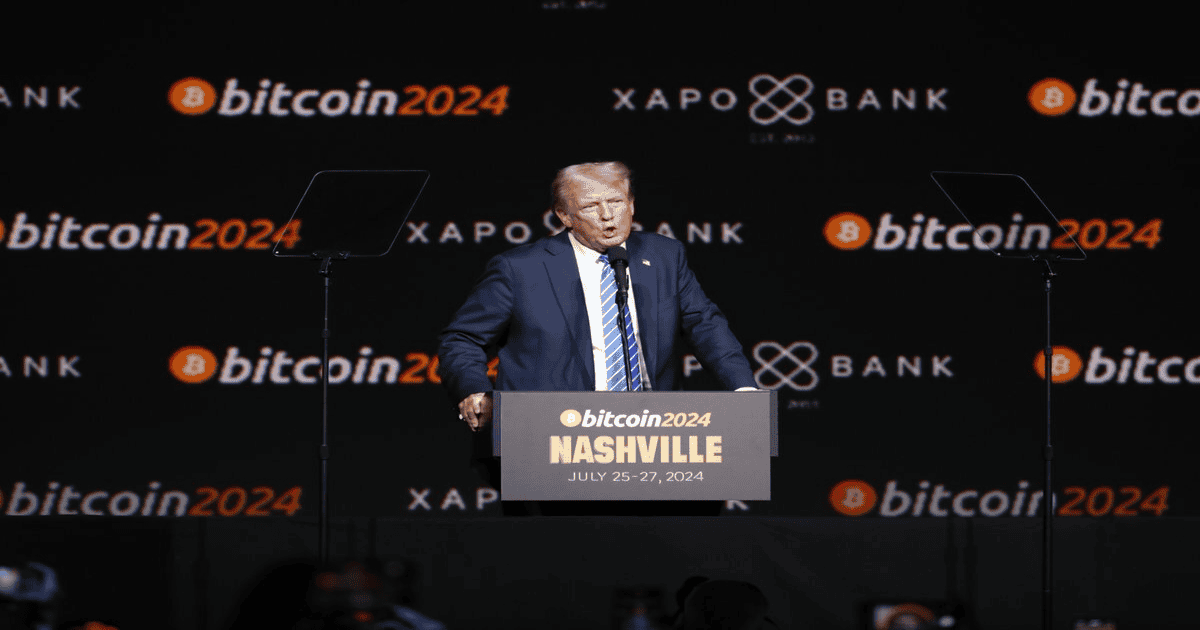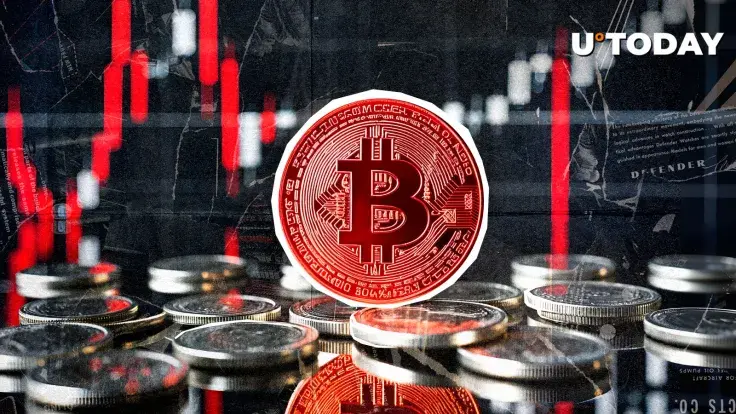Historic Leap: US Government Publishes GDP Data on Bitcoin Blockchain

The U.S. government has initiated a significant shift in its economic reporting by officially publishing gross domestic product (GDP) data on public blockchains. This groundbreaking move, announced by the Commerce Department, integrates blockchain technology into the core of America's economic infrastructure, making GDP figures accessible on nine prominent networks, including Bitcoin, Ethereum, and Solana. This development, reported by Bloomberg, marks a pivotal moment for digital assets in Washington.
Commerce officials clarified that this blockchain rollout serves as "another avenue" for data distribution rather than a replacement for traditional economic releases. Despite this, the initiative carries profound symbolic weight, signaling the government's endorsement of a technology that was once met with considerable skepticism in political circles. Mike Cahill, CEO of Douro Labs, who collaborated with the Commerce Department on this project, stated that this announcement ushers in "a world where government data lives on blockchains, and market participants can participate in real time."
The process involves posting cryptographic hashes of GDP data, which act as secure digital fingerprints to verify the information's integrity and authenticity. While the initial scope is limited, the Trump administration, spearheaded by Commerce Secretary Howard Lutnick, intends to expand the program. Lutnick reportedly told President Donald Trump, whom he dubbed the "crypto president," that statistics would be issued via blockchain, reflecting Trump's proactive stance on digital assets. Lutnick has also previously advocated for revising GDP reporting by excluding the impact of government spending.
This initiative represents a stark departure from the previous administration's approach. Under former President Joe Biden, regulators adopted a cautious stance on cryptocurrency, often clashing with exchanges and implementing restrictions. In contrast, President Trump has swiftly moved to integrate Bitcoin into government policy. Since taking office, his administration has established a U.S. Bitcoin reserve, accumulated various digital assets like Ether and Solana, enacted legislation to regulate stablecoins, and appointed crypto-friendly regulators who have ceased enforcement actions against companies like Coinbase. Furthermore, the Trump family has expanded its involvement in the digital asset sector, backing ventures such as World Liberty Financial.
The growing political influence of the crypto industry is evident, with firms making substantial donations to Trump's reelection campaign and contributing over $133 million to super PACs supporting pro-crypto candidates in 2024, according to OpenSecrets. The Commerce Department's embrace of public blockchains aligns with other federal and state agencies exploring similar technologies; for instance, the Department of Homeland Security has considered blockchain for airport passenger screening, and California's DMV has digitized car titles using crypto, as reported by Bloomberg.
A crucial aspect of this blockchain integration is the involvement of Chainlink, a prominent "oracle" provider, which is powering the direct publication of data onto the blockchain networks. Following this announcement, the price of Chainlink's native token, LINK, surged by over 6%. Chainlink has hailed this collaboration as "a key milestone" for government adoption of blockchain technology, further solidifying its reputation, as its technology is also utilized by major financial players such as SWIFT, BNY Mellon, BlackRock, Visa, and Mastercard.
In the context of these developments, the U.S. economy has shown stronger-than-expected growth, expanding by 3.3% in the second quarter, with consumption increasing by 1.6%. This figure, revised from an initial 3%, represents the best quarter since Q3 2023. Economist Heather Long noted that while the economy is slowing, it "clearly" continues to grow. Despite this relatively robust economic data, the Federal Reserve is still widely anticipated to implement rate cuts next month.
The adoption of blockchain for GDP distribution under President Trump’s leadership underscores a profound transformation in U.S. economic policy, cementing Bitcoin's position as a potent political and financial force in Washington.
Recommended Articles
Historic First: US Government Publicizes GDP Data on Bitcoin & Solana Blockchains

The U.S. Commerce Department has begun publishing GDP data on public blockchains, including Bitcoin and Solana, marking ...
Historic First: US Government Unleashes GDP Data on Bitcoin and Solana Blockchains

The U.S. Commerce Department has begun publishing GDP data on public blockchains, including Bitcoin and Ethereum, markin...
Unprecedented: US Government Seals GDP Data on Bitcoin & Solana Blockchains

The U.S. Commerce Department has initiated publishing gross domestic product (GDP) data on public blockchains like Bitco...
Bitcoin Under Siege: Rare 'Death Cross' Threatens $100K Freefall!

Bitcoin is exhibiting a concerning
Bitcoin on the Brink? 'Rare Death Cross' Signals $100K Price Plunge

The cryptocurrency market is currently navigating significant volatility, with Bitcoin facing a potential 'death cross' ...
You may also like...
Littler's Triumph & Darts Drama: Flanders Trophy Delivers Shocks and New Stars

Luke Littler dominated the Flanders Darts Trophy, securing his fourth European Tour title with an 8-7 win over Josh Rock...
Unstoppable Queens: Super Falcons Secure 10th WAFCON Title, Sparking National Celebration
)
The Super Falcons of Nigeria have secured their 10th WAFCON title with a dramatic 3-2 comeback win against Morocco, spar...
Jude Law's Bold Putin Portrayal in 'The Wizard of the Kremlin' Electrifies Venice with Massive Ovation

The political thriller "The Wizard of the Kremlin," starring Jude Law as Vladimir Putin and Paul Dano as his spin-doctor...
Darren Aronofsky's 'Caught Stealing' Steals the Show: Austin Butler Shines in Action-Packed Thriller, Dominating Box Office

Austin Butler leads Darren Aronofsky's new crime drama "Caught Stealing," playing a bartender embroiled with gangsters i...
Davido, Burna Boy Lead AFRIMA 2025 Nominations: Who Will Reign Supreme?

The 2025 All Africa Music Awards (AFRIMA) has announced a diverse list of nominees, following a record 10,717 entries. N...
Naira Marley Breaks Silence Amidst Mohbad Death Controversy: Investigation Deepens

Naira Marley has released a documentary to break his silence on Mohbad's death, detailing his account of events, from dr...
Pete Davidson's Paternity Joy: Star and Elsie Hewitt Expecting First Child

Comedian Pete Davidson and model Elsie Hewitt are expecting their first child, with Hewitt announcing the news on Instag...
Love Story Unveiled: Taylor Swift & Travis Kelce's Romance Culminates in Engagement!

NFL star Travis Kelce has opened up about his "normal" relationship with Taylor Swift, revealing their organic journey a...